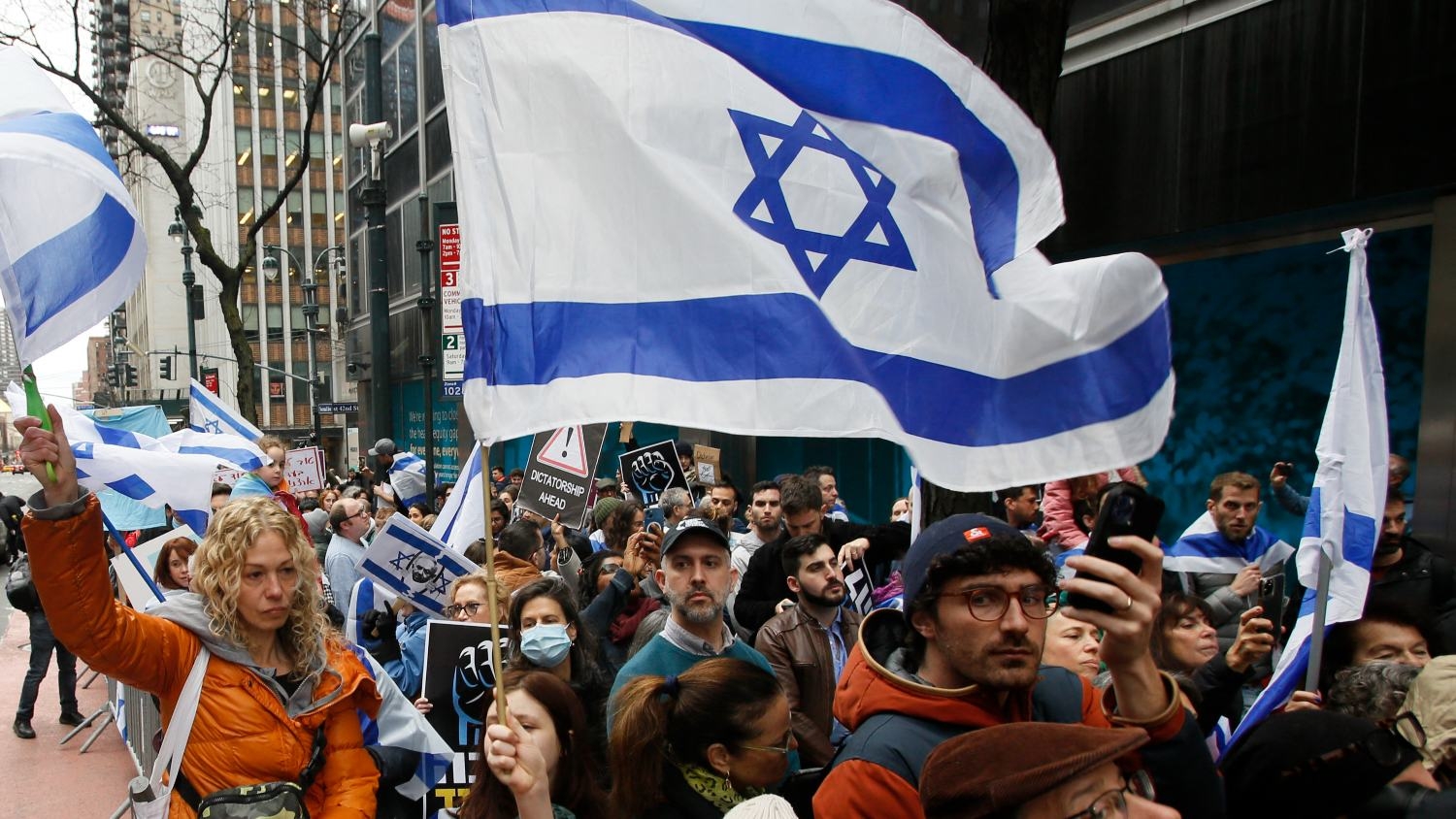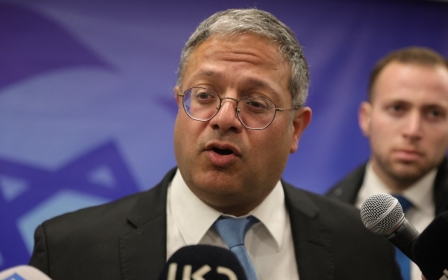Israeli far-right think tank Kohelet is 'shaping US policy', experts say

The Kohelet Policy Forum has been receiving attention recently for its role in the proposed judicial reforms in Israel, but experts say not enough attention is given to the think tank's influence over US politics when it comes to Israel and Palestine.
Ran Cohen, a rights activist and founder of the Israeli civil society group, Democratic Bloc, said one of the first moments the Kohelet Forum gained major attention and traction was in 2019 when then-Secretary of State Mike Pompeo thanked the organisation for helping create the Trump administration's policy recognising Israel's settlements as legal.
"We can put that Pompeo statement as the first sign that made us think that okay, this is something that we should look deeper into, and we found a bigger story than that," Cohen said during an online webinar on Tuesday, hosted by the Foundation for Middle East Peace.
"You don't see high-ranking politicians thanking an NGO, but he took the step and the attention to actually give them the credit for helping with promoting the statement that is actually stating that the settlements in the West Bank are not contradicting international law - a major change in American politics."
Officially, Kohelet Policy Forum defines itself as a research institute working to ensure "the future of Israel as the nation-state of the Jewish people, to strengthen representative democracy, expand individual freedoms and deepen the principles of the free market".
Kohelet Policy Forum, started in Israel in 2012, is a mainly Modern Orthodox think tank funded by American Jewish billionaires Arthur Dantchik and Jeffrey Yass, the latter is one of the biggest donors to the Republican Party in the US.
Other backers include supporters of former US President Donald Trump, who have been concentrating their efforts on growing a new right-wing leadership in Israel that combines religious Zionism with a neoliberal right-wing economic approach.
"They are the locomotive, the spearfront of a bigger ecosystem of ultra-conservative, neoliberal, settlement, Jewish supremacists that are leading a long-term ideological and political project to import the ideas of the fringes of the Republican Party," said Eran Nissan, the CEO of Mehazkim, a progressive digital movement in Israel.
"We're talking about them because they are the ones that wrote the policies, the legislative initiatives that are causing all the turmoil and political crisis right now in Israel."
In describing Kohelet, Nissan said that "to an American audience, just imagine the Koch brothers on steroids".
Middle East Eye reached out to Kohelet for comment on this webinar.
Influencing Israeli and US law
Beyond being a driving force behind the proposed changes to Israel's judicial system, which have caused widespread protests in Israel, the Kohelet Forum has also been behind legislation that Israel has passed in recent years.
Cohen said that Kohelet also played a role in the adoption of the Regulation Law, a law that aims to retroactively legalise Israeli settlements in the occupied West Bank.
He said the think tank also had a hand in the nation-state law, which accords exclusive “national self-determination” rights to Jewish people, wherever they may live, in Israel or abroad, and whether or not they even hold Israeli citizenship. It also gives Hebrew superior status over Arabic, and notably does not say that Palestinians are entitled to equal treatment under the law.
"These are, first and foremost, the most important issues that Kohelet is promoting on the political front," Cohen said.
And the experts on Tuesday said the forum's influence does not stop with Israel, but it also extends to US politics and law.
Lara Friedman, president of the Foundation for Middle East Peace, noted that Eugene Kontorovich, a professor of law at George Mason University and fellow at Kohelet, was described during a 2015 congressional hearing as being a "major force" behind an anti-Boycott, Divestment, and Sanctions law (BDS) in the state of South Carolina. The Palestinian-led BDS movement is a non-violent initiative that seeks to challenge Israel's occupation and abuses of Palestinian human rights through economic, cultural and academic boycotts, similar to the successful boycott campaigns of apartheid South Africa.
'Now that the world is suddenly paying attention to Kohelet in Israel, I think they maybe are missing the story in the US'
- Lara Friedman, Foundation for Middle East Peace
"It's not some conspiracy to say there's this role, whether he does it in the name of himself or the university that he's working for, at the time, or Kohelet Forum," said Friedman.
"It's him, and he is the director of the international law programme at Kohelet Forum, and he is effectively claiming and I believe him to be a key if not the lead drafter and legislation which is now spread across the majority of US States seeking to quash free speech of American citizens."
There are currently dozens of similar bills in states across the US, each requiring state contractors to sign a pledge not to boycott Israel.
Free speech advocates have decried anti-BDS legislation as being antithetical to the US Constitution's First Amendment - which guarantees the right to freedom of speech - and have accused the legislation of stifling the voices of Palestinians and their advocates.
"There's the very strong US side of this. Now that the world is suddenly paying attention to Kohelet in Israel, I think they maybe are missing the story in the US," Friedman said.
"In the US they have played, I would say, a parallel, enormously effective, and quiet role of shaping US policy to where it is today when it comes to anything related to Israel-Palestine."
Middle East Eye propose une couverture et une analyse indépendantes et incomparables du Moyen-Orient, de l’Afrique du Nord et d’autres régions du monde. Pour en savoir plus sur la reprise de ce contenu et les frais qui s’appliquent, veuillez remplir ce formulaire [en anglais]. Pour en savoir plus sur MEE, cliquez ici [en anglais].




